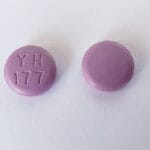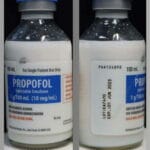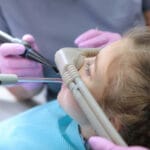Worried about Lexapro overdose? This comprehensive guide provides essential information about Lexapro overdose, including symptoms, risks, and what to do in a crisis. Understanding the facts can be life-saving.
Recognizing a Potential Lexapro Overdose
Lexapro (escitalopram) is a selective serotonin reuptake inhibitor (SSRI) used to treat depression and anxiety. While effective, exceeding the prescribed dose can lead to an overdose. Overdosing on Lexapro, whether accidental or intentional, requires immediate medical attention.
What are the signs of a Lexapro overdose?
Overdose symptoms can range from mild to severe, varying depending on the amount ingested and individual factors.
- Mild Symptoms: These might include nausea, vomiting, diarrhea, drowsiness, dizziness, headache, tremors, sweating, confusion, agitation, and a rapid heartbeat. While seemingly less serious, these symptoms should not be ignored.
- Severe Symptoms: More serious signs of an overdose include seizures, loss of consciousness (coma), serotonin syndrome (high fever, muscle rigidity, and altered mental state), and QTc prolongation (a dangerous heart rhythm problem).
If you’re unsure, it’s always best to err on the side of caution and seek immediate medical help.
Who is at higher risk of a Lexapro overdose?
Certain factors can increase the risk of a Lexapro overdose:
- Taking more than the prescribed dose: This is the most obvious risk factor.
- Combining Lexapro with other substances: Mixing Lexapro with alcohol, benzodiazepines (like Xanax or Valium), or opioids (like painkillers) significantly increases the risk of serious complications, including overdose.
- Pre-existing health conditions: Individuals with underlying health problems, especially heart conditions, are at greater risk.
Taking Action: What to Do in an Overdose Situation
A suspected Lexapro overdose is a medical emergency. Every second counts.
Immediate Steps
- Call for help: Immediately dial 911 or your local emergency number. You can also contact the Poison Control Center at 1-800-222-1222 in the United States.
- Stay with the person: Remain with the individual until help arrives. Provide comfort and reassurance.
- Gather information: Collect details such as how much Lexapro was taken, when it was taken, and if any other medications or substances were involved. This information can be crucial for medical professionals.
- Do not induce vomiting: Unless specifically instructed by a medical professional, avoid making the person vomit.
How is a Lexapro overdose treated?
There’s no specific antidote for a Lexapro overdose. Treatment focuses on managing symptoms and supporting vital functions:
- Gastric lavage (stomach pumping): This is rarely used but might be considered to remove the medication from the stomach.
- Activated charcoal: This can help absorb Lexapro remaining in the digestive system.
- Intravenous (IV) fluids: These help maintain hydration and blood pressure.
- Medications: Doctors may administer medications to control seizures, manage heart rhythm problems, and address other specific symptoms.
- Respiratory support: If breathing becomes difficult, oxygen or a ventilator may be necessary.
Preventing a Lexapro Overdose
Proactive steps can significantly reduce the risk of a Lexapro overdose:
Safety Measures
- Safe storage: Store Lexapro and all medications securely, away from children and others.
- Open communication with your doctor: Discuss any concerns about Lexapro with your physician, including overdose risks. Be candid about other medications or substances you are using. If you’re experiencing suicidal thoughts, reach out for help immediately. You can contact the National Suicide Prevention Lifeline (988 in the US) or a crisis hotline in your area. You are not alone.
- Proper dosage: Take Lexapro exactly as prescribed. Never increase or decrease the dose without consulting your doctor.
Understanding Dosage: 20mg and Beyond
What is the maximum recommended dose of Lexapro?
The maximum FDA-approved Lexapro dose is 20mg per day. Doctors often start patients on a lower dose (e.g., 10mg) and adjust it as needed. Exceeding 20mg significantly increases the risk of side effects and overdose, without necessarily enhancing the medication’s benefits.
What happens if I accidentally take 40mg of Lexapro?
Taking 40mg—double the maximum recommended dose—requires immediate action. Contact Poison Control or your doctor immediately, even if you don’t experience symptoms. Be ready to provide details about the ingested amount, the time of ingestion, and other medications or supplements being taken. While a single 40mg dose is not likely to cause lasting harm, it’s crucial to seek medical advice and take precautions to prevent future occurrences.
What if I take more Lexapro than prescribed?
Contact your doctor or Poison Control immediately. Prompt medical attention is essential, regardless of whether the overdose was accidental or intentional.
How do I safely stop taking Lexapro?
Stopping Lexapro abruptly can cause withdrawal symptoms, including dizziness, nausea, and increased anxiety. Consult your doctor for guidance on safely tapering off the medication.
The Importance of Your Doctor
Your doctor is your partner in mental health. They can determine the appropriate Lexapro dosage, monitor for side effects, and address any concerns. Maintain open communication with your doctor throughout your treatment journey.
Long-Term Effects and Recovery After an Overdose
Most individuals fully recover from a Lexapro overdose with prompt medical care. However, severe overdoses can have long-term health consequences. Ongoing therapy and mental health support are crucial after an overdose, both for the person who overdosed and their support system. Recovery takes time and support. There is hope, and help is available.
If you are curious about other health topics, you might be interested in learning about whether donating plasma burns calories or what to do if you accidentally rinsed your mouth after tooth extraction. Always consult with medical professionals for personalized health advice.
- Georgia Platform: A Southern Strategy, 1850s - March 31, 2025
- How many weeks is 40 days: Quick Conversion Guide for Accurate Results - March 31, 2025
- How many feet is 300 meters? 984 Feet: Understand Length Conversions Easily - March 31, 2025
















